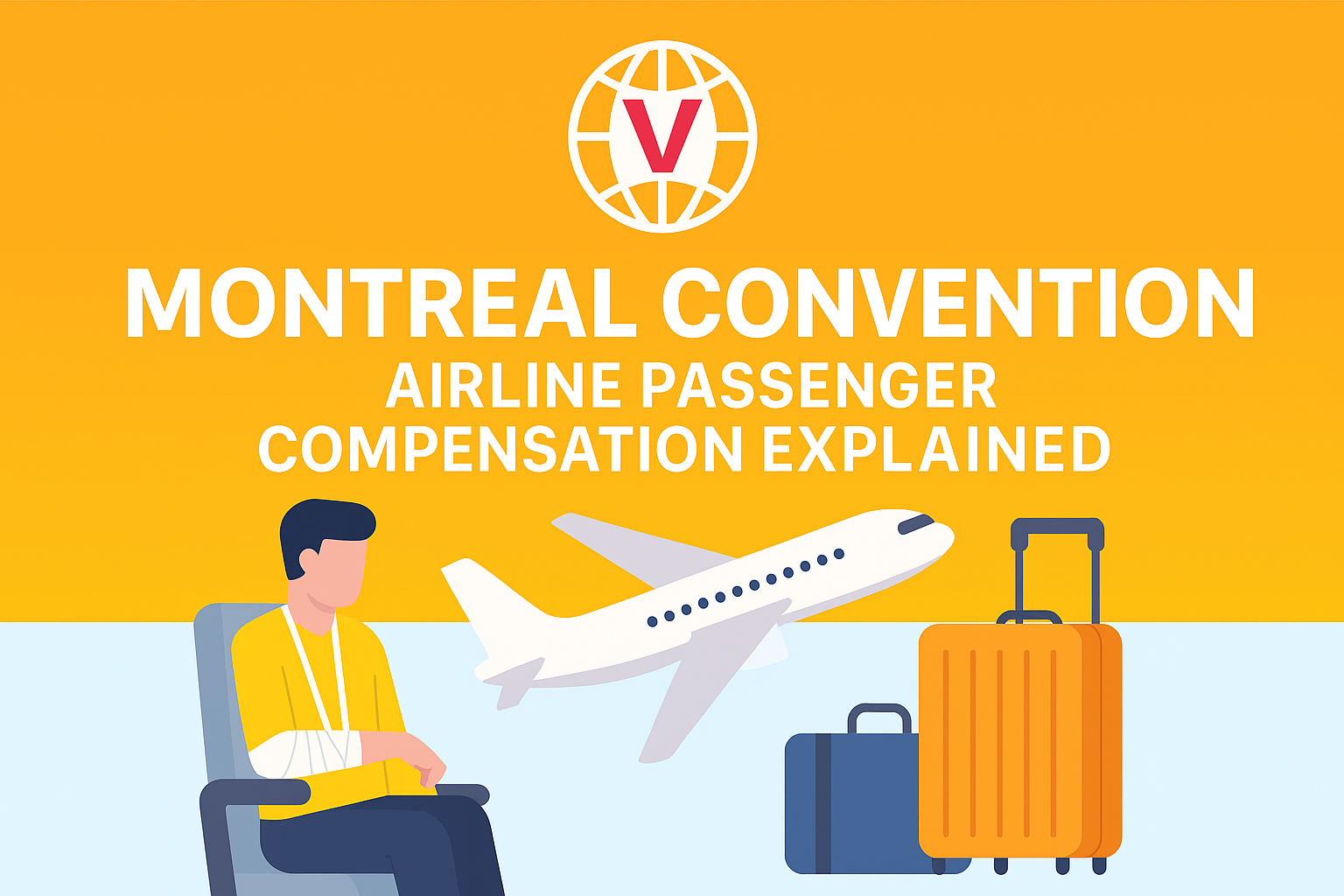Montreal Convention: Airline Passenger Compensation Explained
The Montreal Convention, formally known as the Convention for the Unification of Certain Rules for International Carriage by Air, is a pivotal treaty that governs the liability of airlines in international air travel, especially regarding passenger compensation. It aims to protect air passengers and standardize airline responsibilities in the event of issues such as flight delays, lost or damaged baggage, and injuries or death.
What is the Montreal Convention?
Adopted in 1999 and enforced from 2003 onwards, the Montreal Convention replaced the earlier Warsaw Convention of 1929. It modernized and unified several legal provisions related to international air carriage.
Today, more than 130 countries, including India, the United States, and members of the European Union, are signatories to this treaty, making it a globally accepted framework for handling claims against airlines.
Key Provisions of the Montreal Convention
1. Passenger Injury or Death
Airlines are strictly liable up to 113,100 Special Drawing Rights (SDRs) (approx. USD 150,000) in case of passenger death or injury. Above this threshold, airlines can avoid further liability only if they prove the damage wasn’t due to negligence or was caused by a third party.
2. Flight Delays
Passengers may claim compensation for losses resulting from flight delays, with liability capped at 4,694 SDRs (approx. USD 6,000). However, compensation depends on the extent of loss suffered and if the airline took all reasonable steps to avoid the delay.
3. Baggage Delay, Loss or Damage
Checked baggage: Compensation is capped at 1,288 SDRs (approx. USD 1,700) for loss, delay, or damage.
Unchecked baggage: The airline is liable only if it is at fault.
4. Cargo Loss or Damage
In the case of lost or damaged cargo, the airline’s liability is limited to 22 SDRs per kilogram unless the shipper has declared a higher value and paid additional fees.
How to Claim Compensation Under the Montreal Convention
File a written complaint:
Baggage delay or damage: Within 7 days of receiving baggage.
Cargo loss: Within 14 days.
Flight delay: As soon as possible with documented losses.
Submit documentation:
Boarding passes, baggage tags
Proof of loss or expenses
Medical certificates (if claiming injury)
Approach airline customer service or legal department.
Seek legal redress if the airline refuses compensation.
Montreal Convention vs. Other Air Passenger Rights
While EU Regulation 261/2004 and US DOT regulations provide fixed compensation for delays and cancellations, the Montreal Convention requires proof of actual damage. However, it offers broader protection globally and applies to all international flights between signatory countries.
Benefits of the Montreal Convention for Passengers
Uniform legal framework
Clearly defined compensation limits
Passenger-friendly liability rules
Right to file claims in the country of residence
FAQs on the Montreal Convention and Airline Compensation
1. What flights are covered under the Montreal Convention?
All international flights between countries that are parties to the convention. Some domestic flights are also covered if they are part of an international journey.
2. Can I claim compensation for emotional distress?
Only physical injury or death is covered under the compensation for personal injury. Emotional distress without physical harm may not qualify.
3. How long do I have to file a claim?
You must initiate legal action within 2 years from the date of arrival or when the flight should have arrived.
4. Is compensation automatic under the Montreal Convention?
No. You must prove your losses (e.g., through receipts, documents) to claim compensation, especially for delays and baggage issues.
5. What are Special Drawing Rights (SDRs)?
SDRs are an international monetary unit set by the IMF, and their value fluctuates based on currency exchange rates.
Conclusion
The Montreal Convention empowers air passengers with a global legal framework to seek fair compensation in cases of injury, baggage issues, and delays. Understanding your rights under this treaty ensures that you can hold airlines accountable and secure just compensation for any inconvenience or harm suffered during international travel.







